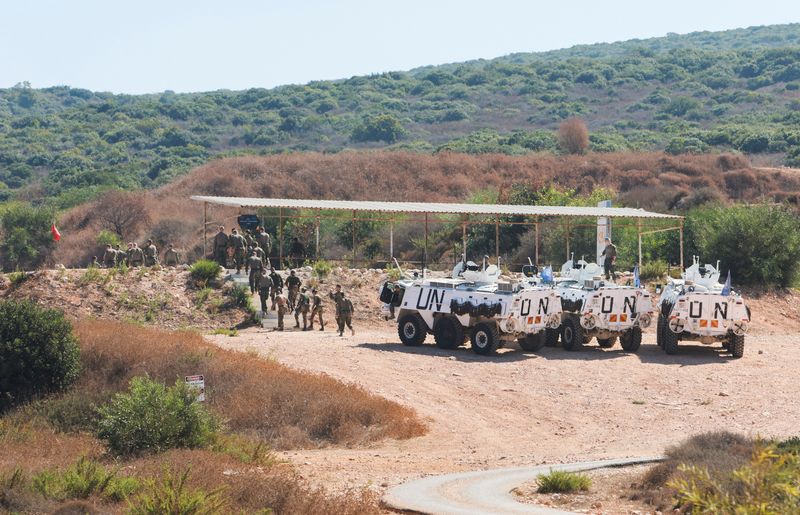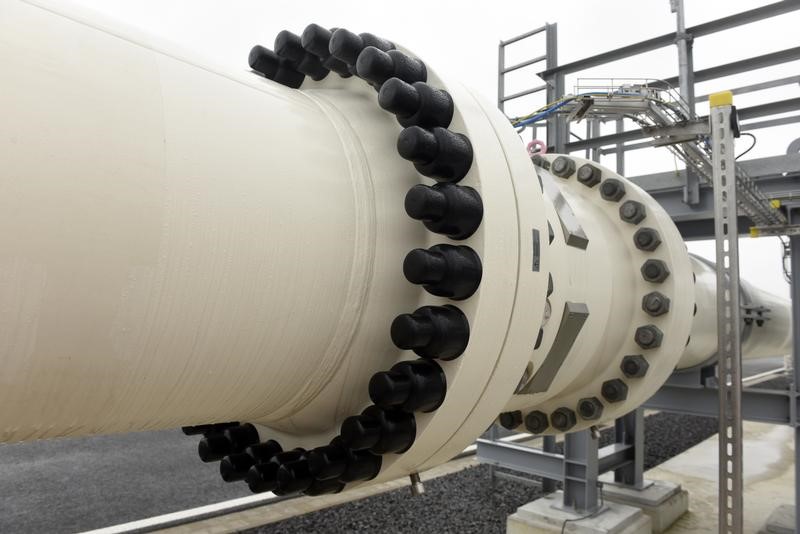JERUSALEM/BEIRUT (Reuters) - Lebanon and Israel are closer than ever to signing a deal demarcating their maritime border, opening the door to new oil and gas exploration, after years of U.S.-brokered negotiations.
While limited in scope, the agreement is set to ease security and economic concerns in both countries, whose shared history is rife with hostility. The deal will only resolve a territorial dispute in the eastern tip of the Mediterranean sea and does not touch on their land borders, which are yet to be settled.
Here are some details of the U.S. proposal that is being discussed on Thursday by Israel's top ministers:
WHAT WILL THE MARITIME BORDER LOOK LIKE?
The border begins around a rocky cliff overlooking the Mediterranean where a U.N. peacekeeping force is headquartered.
The U.S.-proposal, according to Israeli officials, splits the sea border into two sections. The first five km (3.1 miles)from shore will be set along a line that Israel set as its border years ago and has already marked with a row of buoys.
Beyond that, the border will follow a line initially proposed by the Lebanese that is referred to as Line 23. This will demarcate each country's exclusive economic zone (EEZ).
WHAT ABOUT OIL AND GAS EXPLORATION?
Israel has discovered huge deposits of natural gas in its EEZ that is both used domestically and exported.
Lebanon has lagged behind. While licences there were issued for two blocks, no production has happened and other blocks have yet to receive bids. A sizeable discovery could help ease Lebanon's financial crisis, which has left the state unable to import fuel for its power plants.
There is one gas field in a southern Lebanese exploration block, Qana, that extends across Line 23 into Israeli waters. It is estimated to be small and has yet to be explored. Should commercial quantities be found, Israel's prime minister said the deal allows Israel to get a share of royalties from the field.
Israeli officials have already met TotalEnergies to discuss a mechanism. Lebanon's top negotiator Elias Bou Saab said Lebanon had retained its rights with Qana and that Beirut would not pay "one cent" from its part of the field to Israel.
A second field Karish, which is being developed under an Israeli licence farther south and due to come online soon, has been threatened by the heavily-armed Lebanese group Hezbollah. Karish is located below Line 23 and will remain under Israeli control, Israel says.
Bou Saab said Lebanon has retained "all" of its maritime blocs.
COULD THIS LEAD TO FURTHER DIPLOMACY?
Settling the land border dispute between Lebanon and Israel is much more complicated and lacks the urgency of the energy component. Any resolution there would likely depend on a broader peace deal that is not realistic anytime soon.

Israeli leaders have said only that the maritime deal would help regional stability. Lebanon's president said that a deal would not signify a "partnership" with Israel.
"We are avoiding a sure-fire war in the region," Lebanon's caretaker PM Najib Mikati said on Thursday.
